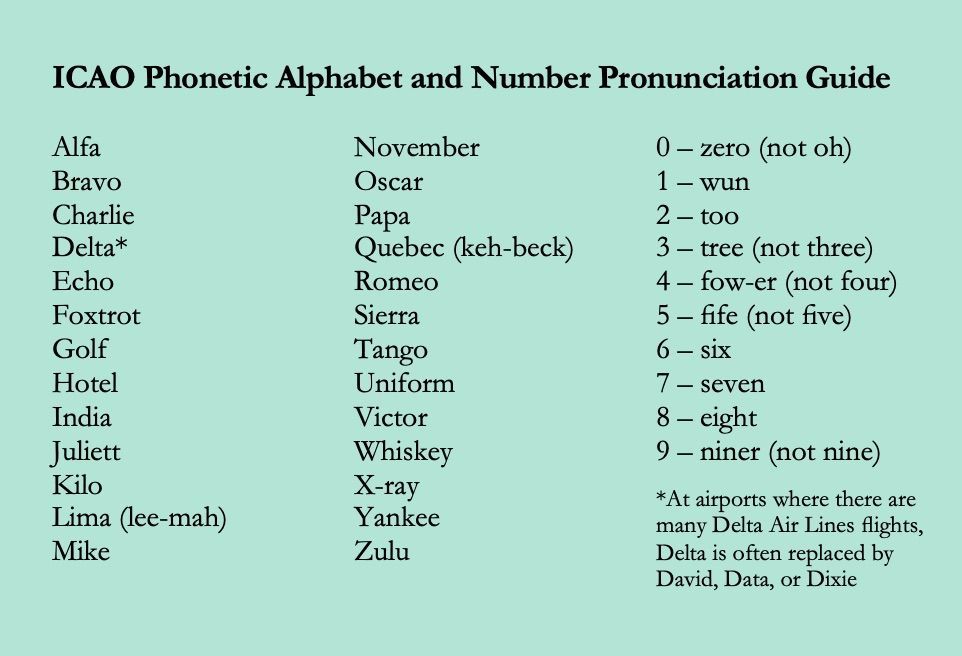What Does It Take to Become a Professional Pilot?
The capabilities and characteristics you need to bring to flight training

‘What does it take to become a professional pilot?’ is a common question heard during this surge of interest in aviation. The most common replies are ‘money’, or a list of FAA requirements.
Those of us who love the profession and care deeply about the future of aviation think the real question is, ‘What does it take to be a SAFE pilot?’, and think you deserve a thorough answer.
This is an overview of the fundamental resources, capabilities, and characteristics a person needs to bring to the serious endeavor of flight training – or needs to be willing to develop – to succeed in becoming a safe and professional pilot.
It is organized into six categories – Money (of course), Mechanical aptitude and health, Mental capacity, Managing self and studies, Mindset, and Motivation – and outlines the qualities needed in each category with a special focus on young people, plus non-negotiables, potential causes for concern, and bonus ‘Pro Tips’.
MONEY
To state the obvious, you will need money, income, and/or good credit for financing of civilian flight training. Your earliest task in pilot training is to obtain realistic figures about costs, establish financial priorities, and understand all your obligations with loans and contracts.
Partial scholarships are out there; full-ride scholarships are virtually nonexistent. Free flight training is available through military service, for those who are highly competitive among top candidates.
Potential concerns about money:
- Uncertainty about costs or where the money will come from
- Can’t take flight lessons regularly, at least weekly
- Infrequency or long gap in training slows progress and ultimately costs more
- Anxiety about cost carrying over to flight lessons
Pro Tip: Applying for flight scholarships now is excellent preparation for applying for pilot jobs later.
MECHANICAL APTITUDE and HEALTH
Being a pilot requires physical dexterity and generally good health, hearing, and eyesight (glasses are fine). Professional pilots need to maintain their health and get regular physical exams. The FAA lists the health conditions that are outright dealbreakers; other issues may need their review before approval.
As a pilot you’ll be flying an aircraft, not building it, so don’t worry if you didn’t grow up making model airplanes. You can acquire the ability to comprehend aircraft technical manuals and systems schematics during training.
Being a good automobile driver and being able to read maps are very helpful. As is any athletic sport, especially team sports and those that require good eye-hand-foot coordination such as basketball, soccer, or tennis.
Not athletic? Playing video games can help to some extent. Physical coordination can be further developed during flight training.
Non-negotiable: You will need full use of your physical and mental capacities to fly. Be aware that marijuana or cannabis and THC products are not and will never be legal for pilots to use, and professional pilots are subject to drug testing.
Potential concerns about mechanical aptitude and health:
- History of anxiety or depression*
- Many moving violations as a driver, especially DUIs
- Showing up for flight lessons drunk or buzzed or hungover
Pro Tip: *Not all health conditions are disqualifying. Investigate and consider a consultation with an FAA Aviation Medical Examiner, BEFORE applying for the FAA medical certificate.
MENTAL CAPACITY
‘Do I need to have a high IQ to be a pilot?’ is a frequently asked question. The answer is: No, not exactly, but yeah kinda sorta.
You don’t need to be genius-level child-prodigy smart, but you DO need to be a bit above average. Not math-whiz smart, but having basic math and science and English skills smart. Not high IQ smart, but common-sense smart, problem-solving smart, able to find your way around new places and experiences smart.
Being a safe pilot requires good executive brain functioning: Organized thinking, planning, risk-management, prioritizing, compartmentalizing, sound decision-making, and keeping a cool head under stress. These are tasks of the prefrontal cortex, the last part of the human brain to fully mature. While many young kids and teens are highly motivated to be pilots, and the FAA allows kids as young as 14 to fly solo in gliders and hot air balloons, some might not be ready to tackle everything that being a safe pilot entails until reaching their 20s.
Potential concerns about mental capacity:
- Smart but hyper-focused/fixated
- Easily distractible, unable to concentrate
- Frequently 'tuned out', lost in thought, oblivious
- Low impulse control
Pro Tip: Invest in professional aptitude testing (not IQ testing) to identify your strengths and areas to develop.
MANAGING SELF and STUDIES
Another common question is, ‘College or no?’. The U.S. major airlines still prefer to hire pilots with college degrees, even though it’s been dropped as a hard requirement.
The college experience can be a young person’s first opportunity to manage their school studies and their life independent of direct parental supervision – an ability necessary to successfully complete professional flight training. In addition, finishing college demonstrates that you can do hard things, including set goals and maintain focus and dedication over a long period to achieve a big milestone.
However, college isn’t the right fit for every person or family or situation. Quite a few young people are going from high school straight to flight school, a valid choice. There are many paths to the top of the mountain, as the Chinese proverb says.
What about your high school Grade Point Average? Those aiming for college or the military already know that GPA can affect their ability to get accepted into the college or program of their choice. Also, an aviation college may require that a certain academic standard be maintained to continue in the flight training program.
Your GPA isn’t an absolute predictor of future success or failure, although the reason for a high or low GPA may be. A GPA may reflect your capacity for learning. Or it may reflect your ability to manage studying, finish assignments, and perform on tests. Or does it point to your level of motivation and effort? The answers will be revealed by your performance in flight training.
So, you don’t need to be a genius, don’t need to be class valedictorian, and don’t even have to have a college degree, in order to be a professional pilot. In fact, we all have at least one friend who performed poorly in school and skipped college, only to do a complete 180 to buckle down and accomplish amazing things once they’ve discovered their true life’s passion.
Which points to one of the biggest factors in success in flight training: Are you passionate about being a pilot? What are you willing to do to achieve that goal?
While the discovery flight and first few lessons may seem like fun and games, things get pretty serious pretty fast. You will need the ability to focus and learn in a structured environment with a curriculum and timetable set by others. You need the discipline to study books or online videos on your own, including on subjects that may not be of particular interest to you but you really do need to know as a pilot – basic aerodynamics, meteorology, engines and electrical systems, regulations. You need to know how you best learn, how to take tests, and how to handle the stress and pressure of studying and deadlines and taking tests. This stress of training and testing continues throughout the professional pilot career.
Non-negotiable: The aspiring pilot must acquire these skills and habits somehow, and many establish them in college — I’m just saying.
Signing up for flight training is a tacit agreement between the student (called a ‘learner’) and the instructor. The learner must bring a willingness to learn just as much as the instructor brings the ability to teach. This includes being willing to suck at something new, putting in the effort, persevering through plateaus in training – which are completely normal and expected! – and being receptive to the instructor's critically important feedback and correction.
Likewise, your instructor should be capable of guiding you through this learning process, including the ups and downs. But they can’t download everything you need to know right into your brain. They should point you to educational resources, and then it’s up to you to learn that material however you can.
While your instructor should encourage you to keep going when you hit a plateau in learning, they can’t be expected to tolerate you lashing out at them or to hold your hand while you cry. Frustration happens; go punch a pillow or seek consolation from a trusted friend – on the ground.
If you suspect your instructor is the reason you’re not progressing in flight training, check this list of red flags – but also consider that the problem might be you.
…Or your personal situation. If you are experiencing a normal life event such as the end of a relationship, death in the family, or arrival of a new baby, this might not be the best time to undertake flight training. Compartmentalization only works to a point. Consider taking a break until you can devote your full attention to the safety duties of a pilot again.
Non-negotiable: Yelling or hitting, touching or groping, and persistent sexual come-ons are giant red flags, and should not be tolerated by anyone in the flight training environment. A pattern of these behaviors is a clear sign that you should fire the instructor, no matter how badly you want to fly. Or that you should be ‘fired’ as a flight student, if you’re the one behaving this way. More guidance here.
Potential concerns about managing self and studies:
- Won’t take responsibility for own training
- Expectation to be spoon-fed knowledge
- Consistently showing up unprepared
- Unwillingness to improve study habits
- Easily frustrated or discouraged
- Thin-skinned, defensive
- Won’t be accountable for mistakes
- Responds poorly to correction and critique
- Persists in training despite being in personal crisis
Pro Tip: The FAA revised their stance on pilots seeking mental health support as of May 29, 2024 – there is no longer a penalty for discussing life’s challenges with a therapist. Please get the help you need.
MINDSET
Being a pilot goes way beyond operating cool aircraft. It potentially means being responsible for a multi-million-dollar aircraft and hundreds of people’s lives while supervising a dozen employees. As a safe and professional pilot, you need to be able to work with and lead all kinds of people while maintaining a professional demeanor and an unwavering focus on safety.
Not only pilots but everyone in aviation must maintain a safety-first mindset. Understand and respect the rules and procedures that are there for safety. Develop the ability to assess safety and reduce risk. Have self-imposed high standards and good boundaries that promote safety. There are dire consequences to complacency and recklessness.
Non-negotiable: Break the addiction to your cellphone! At one major airline, no less than seven new-hire pilots were terminated in a single year, due to being distracted more than once from their flight duties by their cellphones. Don’t let this be you.
While you don’t have to be an extrovert or people-person, or an Eagle Scout or captain of the team, as a professional pilot you do need to be able to get along with other people now and to take on leadership roles eventually.
You will be working alongside a variety of bosses, coworkers, subordinates, and customers. The number of pilots and aviation professionals who are women, Black, Asian, Latino, immigrant, and openly LGBTQ+ is small but growing. Potentially you may fly all over the world to places with different languages and cultures and customs, while right nearby there are folks who think and love and worship differently than you. Get used to working with all of them. Aviation is a small community, and you will come across someone again later, who is now in a position to help you – or not.
Perfectionism can sound like a favorable trait for a pilot, but actually it is not. Striving for excellence – Yes. Seeking perfection, which is unattainable – No.
Underlying perfectionism, there may be people-pleasing. Being open to feedback and input from others – Yes. Constant shifting with the winds – No. Being overly influenced by others is counterproductive for the pilot-in-command who will need to make safety decisions that are sometimes unpopular.
Pro Tip: It is never too early or too late to learn basic teamwork and team-building skills, and interpersonal and conflict resolution skills.
Potential concerns about mindset:
- Lackadaisical, complacent attitude towards hazards and safety duties
- Overconfidence, unreasonable risk-taking
- Prioritizing taking photos or videos over flight training
- Cellphone use to the detriment of flight safety
- Machismo (can be seen in any gender)
- Rigid thinking
- Being a lone wolf or maverick
- Bucking authority: ‘You aren’t the boss of me!’
- ‘Doesn’t play well with others’
- Hard and fast beliefs about people different than themself
- Acute indecisiveness
MOTIVATION
The most successful pilots have an attitude of curiosity, eagerness to learn, striving for excellence. A tendency towards optimism and positivity — ‘I can do this’. Ability to discipline themselves to tackle hard things. To motivate themselves to reach a goal, keep going despite setbacks. Ability to handle pressure and stress. Keep calm and act deliberately in an emergency. They can receive feedback, correction, and critiques in a mature manner — and pivot to focus on improvement. Can endure a plateau or slump and persevere through disappointment and failure.
Thus, one of the most important qualities to have when setting out to become a professional pilot is determination.
It can also be useful to take some time to examine why you want to be a professional pilot. If the only reasons are, your daddy did it so now you will too, or you covet the status and the bucks… you may end up unhappy in this career.
If you want to be a professional pilot because you love flying, airplanes, aviation, travel, and seeing the world, or you love mastery of complex machines, navigating challenges and problem-solving, and striving for excellence… you are likely to have a satisfying pilot career.
Potential concerns about motivation:
- Learning to fly to fulfill a parent’s wish, rather than one’s own
- Treat flight training as a very part-time side hobby
- Prioritizing partying over studying
- Need for a regular schedule
- Desire for a traditional family lifestyle
Pro Tip: If you absolutely positively must fly, you will find a way. Turn down the volume on the naysayers, and gather around you people who support you in this mission.
May your dreams take flight!
My sincere thanks to the many professional aviators who contributed ideas to this article.
© 2024 Jenny Beatty. All Rights Reserved.
Photo credit: Darli Donizete









